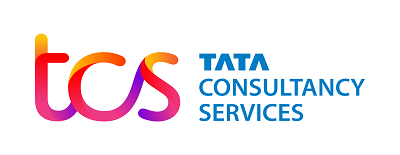About SQL
SQL, or Structured Query Language, is a
programming language used for managing and manipulating relational databases. It is
used to insert, update, and retrieve data from a database. SQL is a standard
language for interacting with databases, and is supported by most relational
database management systems (RDBMS) such as MySQL, Oracle, and Microsoft SQL Server.
SQL is used to create, modify, and query
databases. For example, the CREATE statement is used to create a new table or
database, while the INSERT statement is used to add new data to a table. The UPDATE
statement is used to modify existing data in a table, and the SELECT statement is
used to retrieve data from one or more tables. SQL also includes statements for
controlling access to the database, such as the GRANT and REVOKE statements.
One of the key features of SQL is its ability
to join multiple tables together. This allows you to retrieve data from several
tables as if they were a single table, which can be useful for complex queries. SQL
also supports various types of data, such as numbers, strings, and dates, and
includes functions for manipulating and analyzing this data.
SQL is a declarative language, which means
that you specify what you want to retrieve from the database, rather than how to
retrieve it. The database management system then figures out the best way to execute
the query. This makes SQL relatively easy to learn and use, as the user does not
need to have a deep understanding of how the data is stored in the database.
SQL has been around for decades and has gone
through several revisions, the most recent being SQL:2011. Each revision adds new
features and capabilities to the language. However, despite these changes, the basic
structure and syntax of SQL remains largely unchanged, which makes it relatively
easy for developers who are familiar with earlier versions of SQL to learn the newer
versions.
In summary, SQL is a programming language
that is used for managing and manipulating relational databases. It is a standard
language for interacting with databases and is supported by most relational database
management systems. SQL allows you to create, modify, and query databases, and has
many features that make it easy to learn and use.
Key Features of SQL
Some key features of SQL include:
- 1. Data
Manipulation: SQL allows you to insert, update, and
retrieve data from a database. It includes statements such as INSERT, UPDATE,
and SELECT for adding, modifying, and retrieving data respectively.
- 2. Data
Definition: SQL includes statements for creating and
modifying the structure of a database, such as CREATE, ALTER and DROP.
- 3. Data
Control: SQL includes statements for controlling
access to the database such as GRANT and REVOKE statements, which allow you to
control who can access and make changes to the data.
- 4. Joining
Tables: SQL allows you to join multiple tables
together, making it easier to retrieve data from several tables as if they were
a single table. This feature is useful for complex queries.
- 5. Data
Types: SQL supports various types of data, such as
numbers, strings, and dates, and includes functions for manipulating and
analyzing this data.
- 6. Declarative
Language: SQL is a declarative language, which means
that you specify what you want to retrieve from the database, rather than how to
retrieve it. This makes SQL relatively easy to learn and use.
- 7.
Standardized: SQL is a standardized language, which
means that it is supported by most relational database management systems
(RDBMS) such as MySQL, Oracle, and Microsoft SQL Server.
- 8.
Versatility: SQL is versatile, it can be used for
various tasks such as data mining, data analysis, and reporting.
- 9.
Scalability: SQL is highly scalable and can handle
large amounts of data and many concurrent users.
- 10.
Interoperability: SQL is compatible with other
programming languages and can be integrated with other tools and systems, which
makes it a useful tool in building complex software systems.
Applications of SQL
SQL is widely used in various applications,
some examples include:
- 1. Database Management
Systems: SQL is used to manage and manipulate
relational databases in various database management systems such as MySQL,
Oracle, and Microsoft SQL Server.
- 2. Business
Intelligence: SQL is often used in business
intelligence and data warehousing applications for data mining, data analysis,
and reporting.
- 3.
E-commerce: SQL is used in e-commerce applications to
manage and retrieve customer, inventory, and sales data.
- 4. Online
Advertising: SQL is used in online advertising to
analyze and segment customer data and target ads to specific groups.
- 5. Finance: SQL
is used in finance to manage and analyze financial data such as stock prices and
transactions.
- 6.
Healthcare: SQL is used in healthcare to manage and
analyze patient data and medical records.
- 7. Social
Media: SQL is used in social media to manage and
analyze user data and generate targeted advertising and personalized content.
- 8. Gaming: SQL
is used in gaming to manage and analyze player data, statistics and generate
targeted advertising.
- 9. Logistics and Supply
Chain: SQL is used to manage and analyze logistics
and supply chain data such as inventory and shipping information.
- 10. Mobile and Web
Applications: SQL is used to manage and retrieve data
for mobile and web applications, such as user accounts, preferences and
activity.
Overall, SQL is a powerful and versatile tool
that is used in a wide variety of applications, from small projects to large
enterprise systems. It allows for the management and analysis of large amounts of
data, making it an essential tool for data-driven decision making.
Career Opportunity After SQL
There are many career opportunities available
for those who have a strong understanding of SQL. Some of the most common roles
include:
- 1. Database Administrator
(DBA): A DBA is responsible for the installation,
configuration, and maintenance of a database management system. They ensure that
the database is running efficiently and securely, and troubleshoot any issues
that arise.
- 2. Business Intelligence
Analyst: A Business Intelligence Analyst uses SQL to
extract and analyze data from databases to support decision-making and strategic
planning within an organization.
- 3. Data
Analyst: A Data Analyst uses SQL to extract, clean,
and analyze data from various sources to support decision-making and
problem-solving within an organization.
- 4. Data
Engineer: A Data Engineer designs and builds the
infrastructure to store, process, and analyze large sets of data. They use SQL
and other tools to extract, transform, and load data into data warehouses and
data lakes.
- 5. Data
Scientist: A Data Scientist uses SQL to extract and
analyze large sets of data to build predictive models and identify patterns and
trends.
- 6. Software
Developer: A software developer with SQL skills can
use SQL to interact with databases and retrieve data to be used by software
application.
- 7. SQL
Developer: A SQL Developer focuses on writing complex
SQL queries and developing database objects like tables, views, and stored
procedures.
- 8. IT
Consultant: An IT consultant with SQL skills can work
with clients to design and implement SQL-based solutions to meet their specific
needs.
Overall, having a strong understanding of SQL
can open doors to a wide range of career opportunities in various fields such as
business, finance, healthcare, technology, and more.























